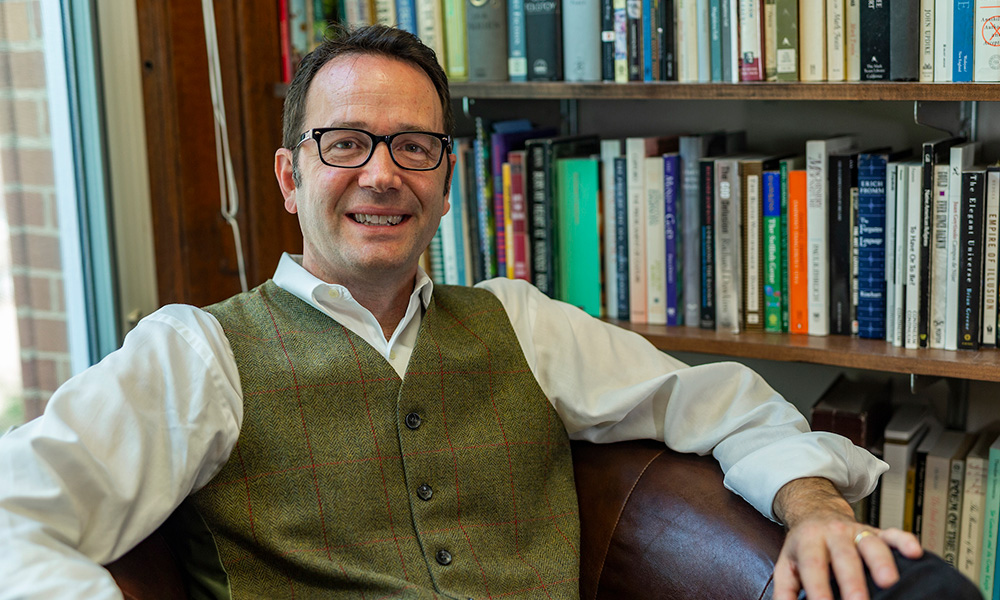Peter Grandbois, associate professor of English at Denison University, examines what it means to live an authentic life, particularly in light of aging, in his collection of personal essays, titled “Kissing the Lobster.” Grandbois’ book focuses on his return to competitive fencing after a 20-year hiatus, as well as the various midlife questions that facing mortality brings. Grandbois examines what it means to age through the lens of fencing, and relates his essays to the eight guiding characteristics of the samurai code Bushido.
“The idea of this book was to use fencing as a way of seeing how my life has turned out, and reflecting on it,” Grandbois says. “What I’ve found is as we get older, the questions we face are thornier and we become less sure of things.” Grandbois used the Bushido code of characteristics, including courtesy, mercy, justice, courage, and honor, to reflect on his life. Each essay focuses on one of these specific concepts, as well as a few that Grandbois created.
Grandbois came to the conclusion that many questions brought up by aging do not have clear answers, and most decisions are neither right nor wrong. “I think we’re at an age now, especially with the rise of social media and the polarization of politics where everybody is very sure of what they think,” he says. “This book is an antidote for that.”
Grandbois’ first memoir, titled “The Arsenic Lobster,” references Spanish poet Federico García Lorca, who explains complicated a concept by saying we all have a giant arsenic lobster hanging over our heads. “The subject of my first memoir was asking what are the ways in which society, our families, and ourselves, constrict us from really living life,” Grandbois says. “As I’m getting older, the reference ‘Kissing the Lobster’ means I’m that much closer to death, so it’s asking what it means to live life to the fullest when we’re older.”
For Grandbois, writing helps him practice what he teaches in the classroom. “We write creatively so we can talk to our students about the process — about how difficult it can be,” he says, “it helps us be authentic.” Grandbois frequently uses segments from his own writing to give his students examples of writing that works, as well as what doesn’t work and what was difficult. “It gives us a chance to speak from practice, as opposed to just theory.”
By writing “Kissing the Lobster,” Grandbois learned that he is his own worst critic. “I learned throughout the book that I’m pretty hard on myself,” he says. “The most important things in life are to listen and have mercy on others, but also to turn that on ourselves.”
For his next project, Grandbois has a historical fiction novel about the Ojibwa chief “Hole in the Day,” coming out in the spring of 2019. He also has a book of poetry coming out in the spring of 2020, and is working on a play with Denison students in May 2019.
Grandbois is proud of the book and the response it has received from family, friends, and strangers. “That’s one of the great things about nonfiction,” he says, “it can hit a nerve with people and speak to them on a personal level.”
